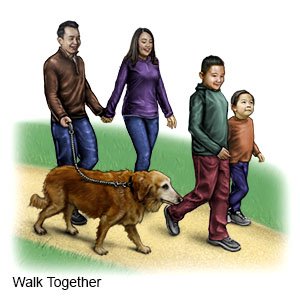Acute Abdominal Pain
Medically reviewed by Drugs.com. Last updated on Apr 6, 2025.
Acute abdominal pain usually starts suddenly and gets worse quickly.
 |
DISCHARGE INSTRUCTIONS:
Call your local emergency number (911 in the US) if:
- You have any of the following signs of a heart attack:
- Squeezing, pressure, or pain in your chest
- You may also have any of the following:
- Discomfort or pain in your back, neck, jaw, stomach, or arm
- Shortness of breath
- Nausea or vomiting
- Lightheadedness or a sudden cold sweat
Seek care immediately if:
- You vomit blood or cannot stop vomiting.
- You have blood in your bowel movement, or it looks like tar.
- You have bleeding from your rectum.
- Your abdomen is larger than usual, more painful, and hard.
- You have severe pain in your abdomen.
- You stop passing gas and having bowel movements.
- You feel weak, dizzy, or faint.
Call your doctor if:
- You have a fever.
- You have new or worsening signs or symptoms.
- Your symptoms do not get better with treatment.
- You have questions or concerns about your condition or care.
Medicines:
- Medicines may be given to decrease pain, treat an infection, or manage your symptoms.
- Take your medicine as directed. Contact your healthcare provider if you think your medicine is not helping or if you have side effects. Tell your provider if you are allergic to any medicine. Keep a list of the medicines, vitamins, and herbs you take. Include the amounts, and when and why you take them. Bring the list or the pill bottles to follow-up visits. Carry your medicine list with you in case of an emergency.
Manage acute abdominal pain:
- Apply heat on your abdomen for 20 to 30 minutes every 2 hours for as many days as directed. Heat helps decrease pain and muscle spasms.
- Keep track of your abdominal pain. This may help your healthcare provider learn what is causing your pain. Include when the pain happens, how long it lasts, and what the pain feels like. Track any other symptoms you have with abdominal pain. Also track what you eat, and any symptoms you have after you eat.
Prevent acute abdominal pain:
- Make changes to the foods you eat, if needed. Do not eat foods that cause abdominal pain or other symptoms. Eat small meals more often. The following changes may also help:
- Eat more high-fiber foods if you are constipated. High-fiber foods include fruits, vegetables, whole-grain foods, and legumes such as pinto beans.

- Do not eat foods that cause gas if you have bloating. Examples include broccoli, cabbage, beans, and carbonated drinks.
- Do not have foods or drinks that contain sorbitol or fructose if you have diarrhea or bloating. Some examples are fruit juices, candy, jelly, and sugar-free gum.
- Do not eat high-fat foods. Examples include fried foods, cheeseburgers, hot dogs, and desserts.
- Eat more high-fiber foods if you are constipated. High-fiber foods include fruits, vegetables, whole-grain foods, and legumes such as pinto beans.
- Make changes to the liquids you drink, if needed. Do not drink liquids that cause pain or make it worse, such as orange juice. Drink liquids throughout the day to stay hydrated. The following changes may also help:
- Drink more liquids to prevent dehydration from diarrhea or vomiting. Ask your healthcare provider how much liquid to drink each day and which liquids are best for you.
- Limit or do not have caffeine. Caffeine may make symptoms such as heartburn or nausea worse.
- Limit or do not drink alcohol. Alcohol can make your abdominal pain worse. Ask your healthcare provider if it is okay for you to drink alcohol. Also ask how much is okay for you to drink. A drink of alcohol is 12 ounces of beer, ½ ounce of liquor, or 5 ounces of wine.
- Manage stress. Stress may cause abdominal pain. Your healthcare provider may recommend relaxation techniques and deep breathing exercises to help decrease your stress. Your provider may recommend you talk to someone about your stress or anxiety, such as a counselor or a friend. Get plenty of sleep. Exercise regularly.

- Do not smoke. Nicotine and other chemicals in cigarettes can damage your esophagus and stomach. Ask your healthcare provider for information if you currently smoke and need help to quit. E-cigarettes or smokeless tobacco still contain nicotine. Talk to your healthcare provider before you use these products.
Follow up with your doctor as directed:
Write down your questions so you remember to ask them during your visits.
© Copyright Merative 2025 Information is for End User's use only and may not be sold, redistributed or otherwise used for commercial purposes.
The above information is an educational aid only. It is not intended as medical advice for individual conditions or treatments. Talk to your doctor, nurse or pharmacist before following any medical regimen to see if it is safe and effective for you.
Learn more about Acute Abdominal Pain
Treatment options
Care guides
Further information
Always consult your healthcare provider to ensure the information displayed on this page applies to your personal circumstances.
